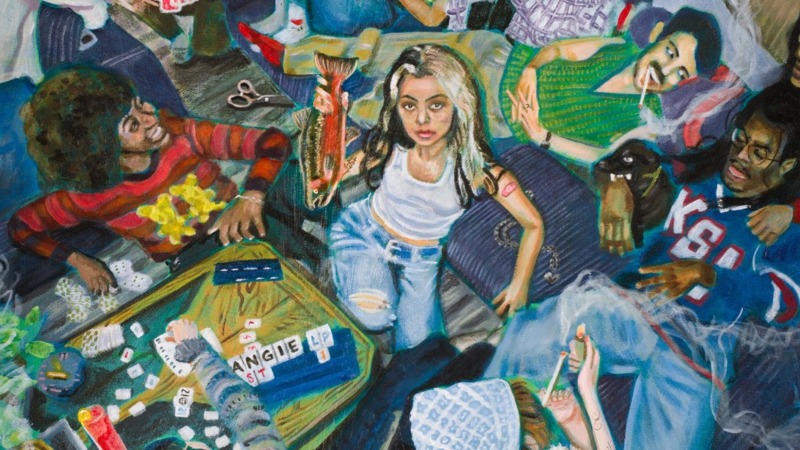spill tab Exists in Extremes on ANGIE
Claire Chicha’s full-length debut is an exercise in boundless creativity. Full to the brim of influences, its brightest moments get obscured by unfocused experimentation.

Born in Bangkok to a French-Algerian jazz composer father and a Korean pianist and harpist mother, Claire Chicha—who performs under the moniker of spill tab—was never without music: be it the French jazz-folk she absorbed living in Paris, the classical music emanating from her parents’ LA studio, the serene, simple melodies of her childhood in Thailand, or the blaring alternative rock she found in acts like Paramore and Green Day. Her music carries an imprint of each influence. In 2019, she released her debut single “Decompose,” an FKJ-meets-Still Woozy lo-fi pop track. As the next decade began, Chicha integrated into different niches of the indie-pop universe, collaborating with the likes of Tommy Genesis (of Lana Del Rey’s “Peppers” fame) and genre-defining golden boy Gus Dapperton (whom she previously was a merch manager for), as well as landing gigs opening for Wallows and Sabrina Carpenter.
Her full-length debut, ANGIE, follows three EPs and a myriad of singles over the past six years. The record is a noted departure from the uncomplicated bedroom pop of her earliest releases, like 2020’s “Santé” or “Cotton Candy.” Chicha, now with Because Music after a stint under Arista Records, found in ANGIE a reprieve from the rigidity and discomfort she’d felt while working on early releases. Much of the album was built from studio sessions that originally had no end goal in mind; sometimes Chicha and her producers (who included pop regulars John Hill and Solomonophonic) would start with a riff in mind, other times they’d dive into a meandering jam until they heard a snippet of something they liked.
ANGIE emits risk—a true example of an artist ready to take big swings. Chicha is a fearless genre-bender: across 12 tracks, she delves into bossa-funk, new wave, electroclash, ambient folk, and R&B-jazz. There are brain-rattling 808s (“PINK LEMONADE”), catchy surf-rock guitar riffs (“Assis”), ‘80s New Wave synths (“Hold Me”), twangy acoustic passes (“by Design”), pensive trumpet solos (“wet veneer”), piano ballads (“Adore Me”), and TikTok pop melodies (“Athlete”). It’s hard to find something the album doesn’t have. There’s something to be said about making an album entirely on instinct; going with gut feelings might be the best, most natural way to approach art. But on ANGIE, it adds up to a greater lack of cohesion, a missing identity that prevents the album from sounding complete, like a grab-bag rather than a prix fixe. There’s no shortage of ideas Chicha wants to chase down, but casting such a wide net means a few bold measures inevitably fall flat.
Some, if not most of the songs on ANGIE squeeze a healthy assortment of genres into their 2-to-3-minute runtimes, with few songs ending where they start. Sometimes it works; the title track seamlessly progresses from an acoustic melody to a screeching wall of distorted guitars and hypnotic vocal repetition. The instinctual recording process shines on songs like “De Guerre,” a booming triumph that travels from industrial rock into digicore. Guttural, half-spoken French vocals lean into the rage (“De Guerre” is French for “the war”), creating a gripping atmosphere that has you holding your breath until the final note.
-

-

-

-

-

-

-

-

-

-

-

-

-

-

-

-

-

-

-

-

-

-

-

-

-

-

-

-

-

-

-

-

-

-

-

-

-

-

-

-








































